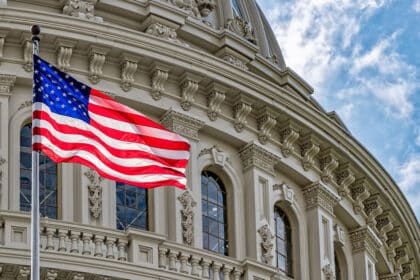The 54th World Economic Forum in Davos gathers global leaders to discuss challenges ranging from geopolitical tensions to AI impact. Key themes include security, economic growth, AI ethics, and climate strategy.
From January 15 to 19, 2024, the small Swiss alpine town of Davos will once again become the epicenter of global discussions with the celebration of the 54th edition of the World Economic Forum (WEF), under the theme “Rebuilding Trust”.
With over 1,000 leading companies from different countries and the participation of 100 governments, along with heads of state, CEOs, academics, and representatives of international organizations such as the UN, this event brings together a diverse group that annually shapes the global economic and political agenda.
The meeting aims to address the complex challenges facing the world, from radical changes in economic policies and tense geopolitical relations that have led several countries to war, to the rapid technological advances propelled by Artificial Intelligence that are transforming society in unpredictable ways.
The agenda will be organized around four main areas:
- Achieving Security and Cooperation in a Fractured World: The discussion will focus on effective strategies to address security crises, such as the current situation in the Middle East, while also seeking to strengthen structural forces to prevent fragmentation. Additionally, there will be an exploration of the need to identify critical areas where cooperation is essential for a mutually beneficial scenario.
- Creating Growth and Jobs for a New Era: Political and business leaders will discuss how to develop a new economic framework that avoids a decade of slow growth and places people at the center of a more prosperous trajectory.
- Artificial Intelligence as a Driving Force for the Economy and Society: The effects of AI technologies will be anticipated, addressing the various ethical challenges they pose due to violations of intellectual property rights and potential risks of algorithmic manipulation. Other topics such as 5G, quantum computing, and biotechnology will also be addressed in various fields.
- A Long-Term Strategy for Climate, Nature, and Energy: This debate will focus on developing a long-term systemic approach to achieving the goals of a carbon-neutral and nature-positive world by 2050, while ensuring affordable, safe, and inclusive access to energy, food, and water. The complexity of balancing these aspects to achieve social consensus, considering potential conflicts and trade-offs, will be discussed.
As reported by Cointelegraph, one of the highlighted debates for the cryptocurrency industry, scheduled for January 17, will be on “the economy of tokenization”. This debate will feature Jeremy Allaire, CEO of Circle, issuer of USD Coin (USDC), and Denelle Dixon, CEO of the Stellar Development Foundation, discussing tokenization and how governments can leverage this technology.
On January 18, cryptocurrencies will take center stage at the Forum, where distinguished industry leaders will debate the crucial role of regulators in protecting users without hindering innovation, recognizing the importance of fostering an environment conducive to the continuous development of these technological solutions.
While attending Davos involves a significant investment, for many world leaders and business figures, it could be worthwhile thanks to the exclusive networking opportunities and discussions held at this event, which has served for over 50 years as a platform for dialogue on critical issues.




